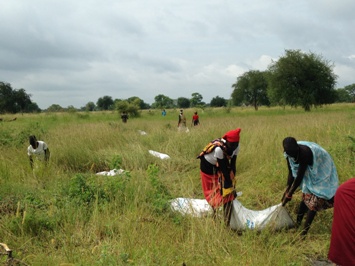South Sudan at risk of ‘hunger catastrophe’, UN agencies warn
June 30, 2016 (JUBA) – The level of food insecurity in South Sudan has reached its highest level since the start of the conflict over two years ago, the United Nations said.

The 4.8 million people, it said, does not, however, include some 350,000 displaced people seeking refuge at UN Protection of Civilians areas or other camps, who are entirely dependent on humanitarian assistance.
The world body earlier expressed concerns over renewed violence in South Sudan’s town of Wau, asking the warring factions to immediately cease hostilities for dialogue.
In April, an Integrated Food Security Phase Classification report forecast that 4.3 million people in the world’s youngest nation urgently needed food, agriculture and nutrition.
“The deteriorating situation coincides with an unusually long and harsh annual lean season, when families have depleted their food stocks and new harvests are not expected until August,” the UN warned in the statement.
“The level of food insecurity this year is unprecedented,” it further added.
There are concerns about the food insecurity spreading beyond areas of conflict, as rising prices, impassable roads and dysfunctional markets prevent families from accessing food.
The various UN agencies, however, assured that despite the difficult circumstances in which they operate, they would work with international and local non-governmental organizations to deliver life-and livelihood-saving support.
(ST)
